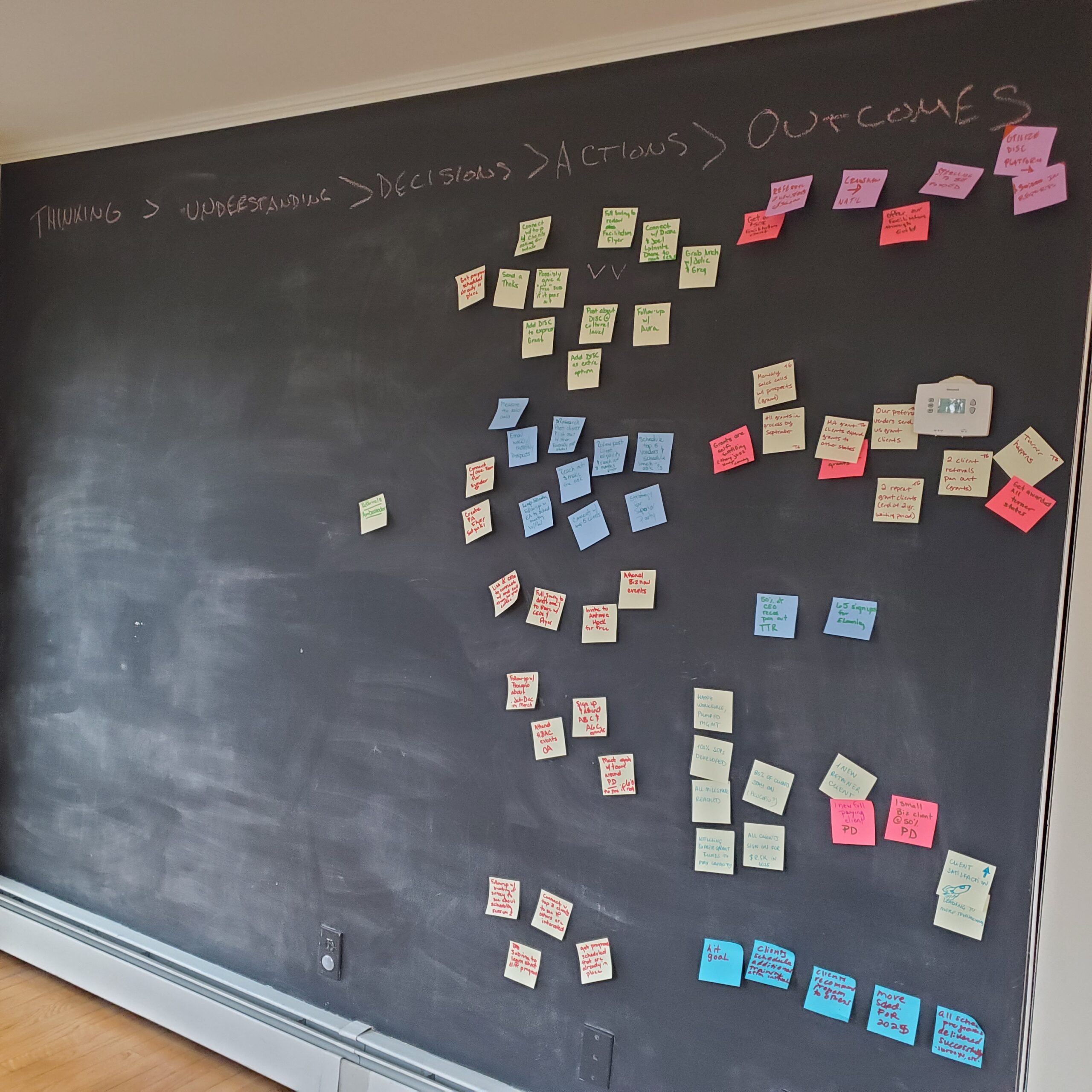I’ve participated in Manager and Leadership Development Programs for the past 10 years with 2,000+ participants from all over the world. Of all the feedback I’ve heard, my favorite is to hear that the program has positively impacted lives beyond their careers.
Participants have reached out to me personally to share how they’ve incorporated coaching methods into their personal relationships, whether it be their spouse, family, or friends. Or that they have “stayed low on the ladder” with their spouse recently and the conversation didn’t escalate the way it normally does.
I can attest that management strategies have played a role in my household. Three years ago, I took on the biggest leadership role of my life–becoming a mother. My two sons, aged one and three, have tested my management skills more than any program. I realized I still have a lot to learn–but have found that there is an overlap in parenting and management. I’ve highlighted a few major skills that new parents may find helpful as they begin exploring effective communication with their children.
Listening.
“The Kangaroo Story” is an exercise I use often to demonstrate the power of listening. A facilitator begins a story and passes it onto a pair of individuals as to let them finish it. Once the pair begins telling the story, the facilitator will clap their hands, indicating that person “B” has to continue the story where person “A” left off. As the story progresses, the claps become more frequent, creating less time between the pair’s turn to speak.
So…why this exercise?
Stephen Covey once said, “Most people do not listen with the intent to understand; they listen with the intent to reply.” That being said, The Kangaroo Story brings awareness to the internal chatter that is inevitable during any conversation, especially in our face-paced world. Do you listen to the those you communicate with well enough to be able to expand on their ideas at the clap of a hand? Or do your own thoughts and opinions block those ideas from becoming a collaborative story?
I decided to try this method with my son.
“Hey bud, do you want to make up a fun story?”
…His immediate response: “YESSS!”
We sat down, knee to knee, and began the story. I told him when I clapped my hands, he had to make up something silly to go along with the story. It was magical. But what really struck me is it reminded me how important it is to truly listen. Our children, family, friends, employees–they all want to be heard. We especially want our children to know they have a voice and we are listening. Make a point to turn off all the internal chatter at least twice a day; once in the morning, once in the evening.
Learning from Mistakes
The Maze exercise is one I utilize frequently to demonstrate the importance of being resilient to mistakes. Here is a snapshot:
1. Two teams of the same number
2. A maze segmented into squares with hidden buzzers
3. If a teammate steps on an incorrect square, a buzzer will sound
4. If you sound a buzzer, you must return the same way you entered, otherwise it is considered an “avoidable mistakes,” costing you $100,000 (fake money, of course!)
5. First team to finish wins
After conducting this exercise, we ask participants why we call these mistakes avoidable. When you compare The Maze to the real world, it shows how important it is to reflect on your mistakes, learn from them, and never do them twice.
Cue parenting. My son loves to run. Why walk when you can run?! Not long ago, we were running home and he fell and scraped his knee on the sidewalk. He was very upset, so my husband carried him home. Once he stopped crying, we asked him if he’d like to go back to the spot where he had fallen to conquer it. He said yes. We went back the spot and my son confidently ran over it. He turned around and said proudly, “Mommy, I did it without falling this time!” Tears of joy filled my eyes–I was so proud of that little boy.
Cue managing. Your employees are going to make mistakes–and I hate to break it you to–but you will too. It can be painstaking, but it’s important to understand why that mistake happened. How could it have been avoided? What can be done to fix it now and prevent it in the future? Bonus points if you are willing to share your mistakes with others as to make them more preventable.
People are Motivated Differently
Say what you want about behavioral profiles such as DISC, Myers Briggs or Predictive Index. The underlying principle each aims to teach is that we are all motivated and driven differently. These exercises help provide data, detail and suggestions to take advantage of these differences.
Listen up managers. This is a big one. We all know those people that are “doers” and quickly get promoted to managers. This could also be said about becoming a parent. A major issue with new managers is they expect employees to do their job in the same way they do their own. Can you blame them? Of course not. But inevitably, managers will have an employee where that simply does not work. Frustration kicks in, performance issues arise, and a star employee is suddenly looking for employment elsewhere. 70% of employees leave because of their manager. That is a BIG statistic. I cannot stress this enough: The only person you can change is yourself. People can be successful, even if their process is different than yours. Learn to adapt your style in a way that will motivate that person to find the solution on their own. Your way is not always the highway.
Parents. This is where I need to look to parents with older children. How do you handle it when your child decides they want to join drama rather than football? Or that they aren’t into construction and instead want to be a teacher? Here’s what I’ve learned from personal experience. If I let my 3-year-old son dress himself, he’d always be naked. So, I give him two options to pick from. If he picks the shirt from option one and the pants from option two, we’ve still reached the larger goal of being clothed in public. He usually ends up finding swim goggles, or vision goggles as he has termed them, to add to this outfit (in December). Can’t knock him for accessorizing!
In closing, the point I constantly try to make is this; learning is all around us and knowledge can be gained from one context and used in another. Whether you use management training strategies to help raise your children or TV show examples at work, take a moment at the end of each day to think about how you might be able to utilize what you’ve learned over the last 24 hours in other contexts in your life. I hope what you find pleasantly surprises you–I know it continually does for me.
So, here’s the TLDR version I’ll leave you with today:
- Listen. Everyone has a story, so instead of constantly telling yours, be open to listening and learning from others as they speak to you. Listen with the intent to understand.
- Learn from mistakes. Mistakes are vital to our personal and professional growth. Learn what knocked you down, how you got back up, and how you will stay up.
- Different is okay. Make it priority #1 to be adaptable to your employee’s / child’s methods. Your way may not be the best way for them. If they’re meeting goals and making you proud, then give them the freedom to choose how they achieve that.









